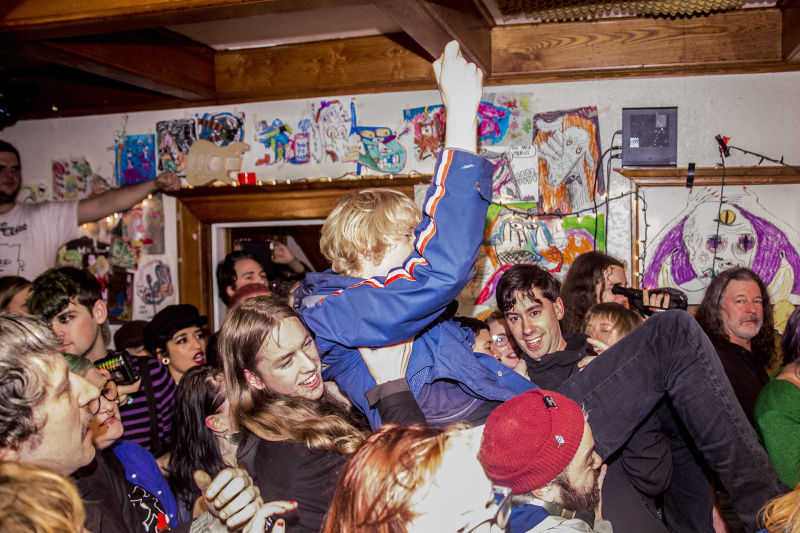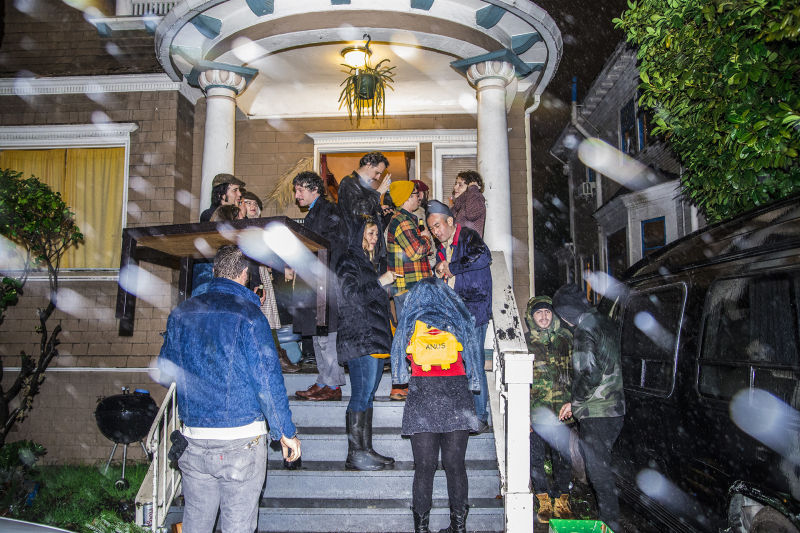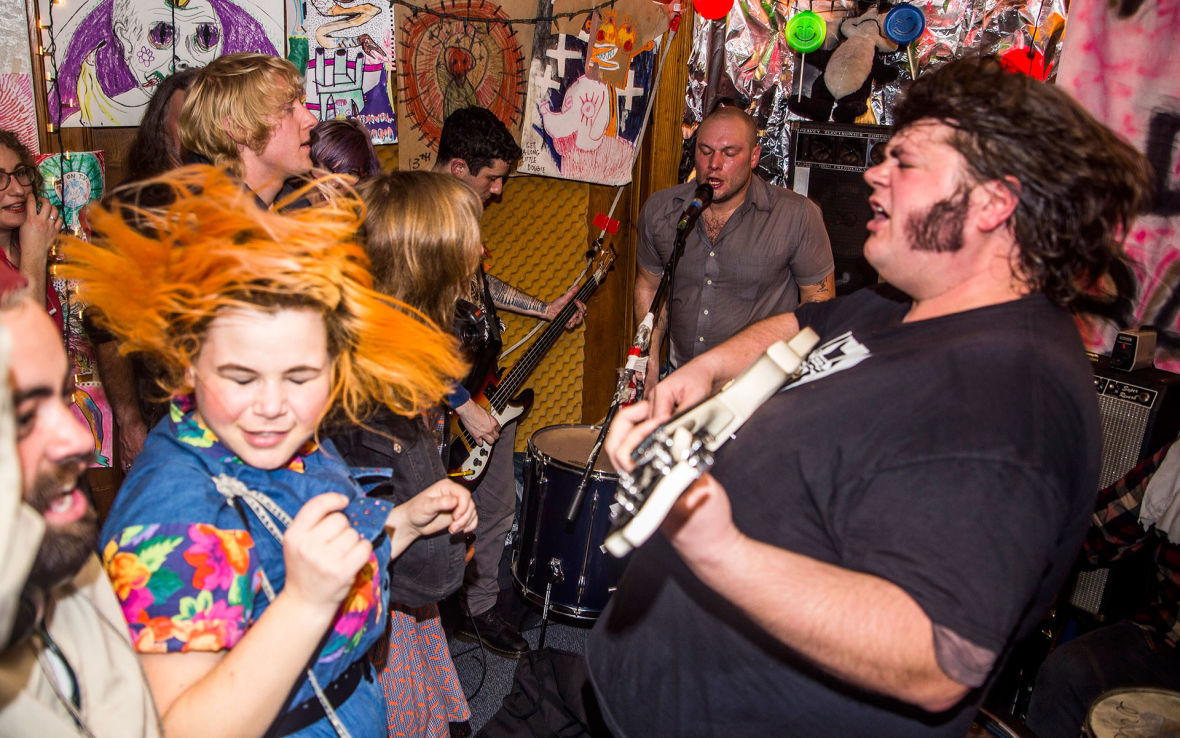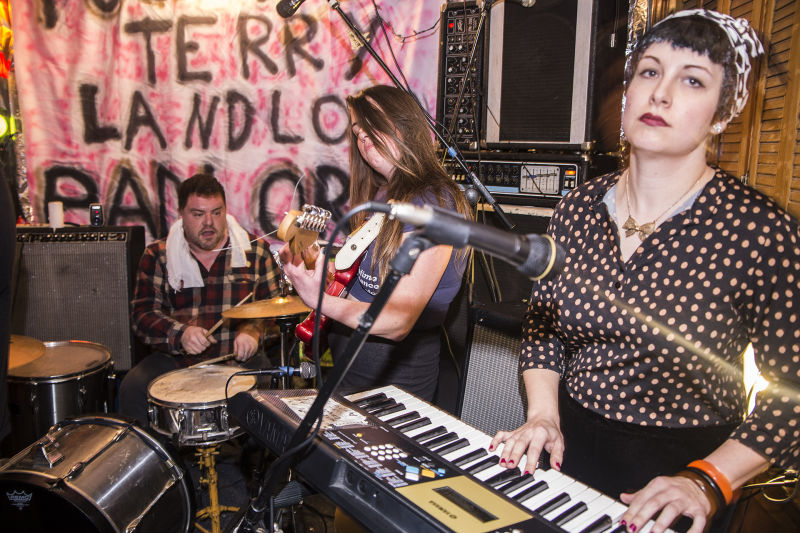“The chorus of this song is emblazoned on the wall, so sing along,” says Dan Shaw, playing guitar in the hastily assembled Telegraph Beach All Stars, a five-piece band composed of every resident at the two-story Oakland residence known as Telegraph Beach. Around 50 people cram into the shoebox living room, which is strewn in tinfoil, while others watch on a VHS monitor installed rather craftily in a bedroom. And at the cue of a careening riff and a battery of percussion, everyone shouts the phrase spray-painted on a banner behind the band: F–k you / Terry / Landlord / Badlord.
It’s crass, but perfectly calibrated for the occasion: Telegraph Beach is getting evicted.

For 10 years, the house — situated on Telegraph Ave. between 31st and 32nd Streets, in Oakland’s newly dubbed Koreatown Northgate District — afforded residents something precious. In one of the nation’s most expensive rental markets, Telegraph Beach tenants paid less than $500 a month. They worked part-time, if that. For leaseholder Courtney Crusher, yard sales often sufficed. In the living room, they rehearsed, recorded, and performed, which yielded some of Oakland’s most celebrated rock releases in recent years. Come Feb. 1, however, the house’s owner — who moved into the granny unit, thereby eluding the city’s Just Cause ordinance — told Crusher that he intends to renovate and sell, then move to Oregon.
Telegraph Beach was part of a shadowy constellation in Oakland, a network of homes with cryptic names and reputations for consistently hosting gigs but avoiding official publicity. In recent years, similar venues for house shows nearby have burned down, burned out, and elicited police attention following complaints from incoming neighbors. Property insurers have even been known to scour social media for mentions of residences as venues and then contact the owners. And though Oakland’s punk houses have appeared and disappeared cyclically for decades — with Phoenix Ironworks in the 1980s and Pill Hill Zoo Haus in the 1990s, for instance — disappearances vastly outnumber appearances today.
In other words, Telegraph Beach’s dissolution is a microcosm of Oakland’s affordability crisis, and a case study in how housing issues impact small corners of the arts. As frenzied development alters the sites where underground music has historically thrived — derelict commercial space, structures with absentee landlords — critics contend the City of Oakland hasn’t striven to retain artists (or lower-income people of color). Oakland lacks even the rent protections and arts infrastructure in place in San Francisco, which many activists consider insufficient, palliative measures, anyway.

Carlos Bermudez says he started Telegraph Beach in 2006, though the name came later, as a “budget-rock space,” using a term for garage rock associated with 1990s revivalists such as The Mummies. He recalls that, in the mid-2000s, underground venues such as 40th St. Warehouse and Grandma’s House (which George Chen recently chronicled for SFMOMA) were shuttering, but homespun spaces such as Telegraph Beach proliferated.




